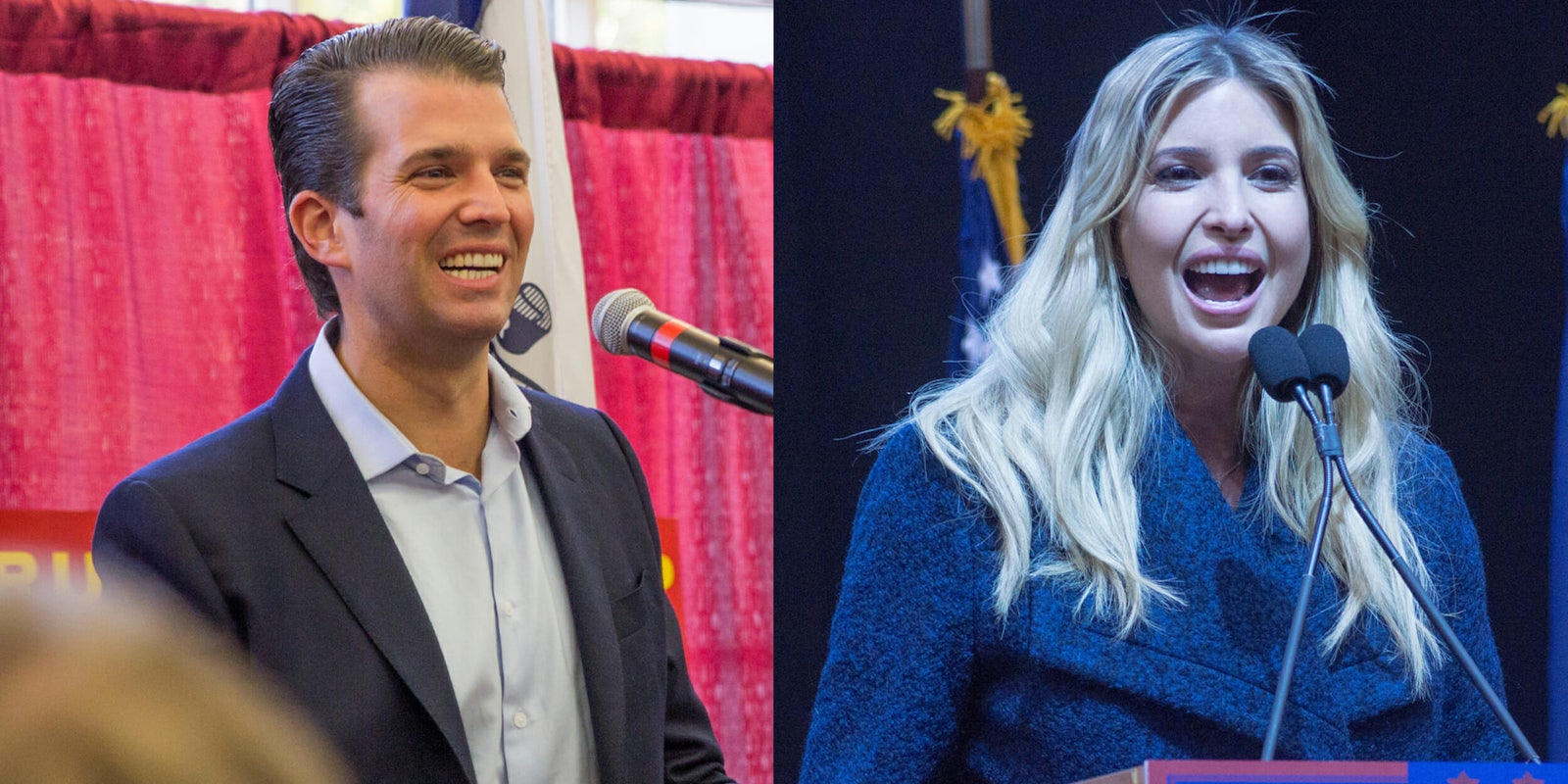Ivanka Trump and Donald Trump Jr. were close to being indicted in 2012 for misleading buyers about units in a Trump-branded New York City property, according to a new report.
President Donald Trump’s children were being investigated for two years by the Manhattan District Attorney’s office as it built a case against them for intentionally misleading prospective tenants at Trump SoHo, a hotel and condo development that was not attracting buyers, according to a joint report from ProPublica, WNYC, and the New Yorker.
Evidence against Ivanka Trump and Trump Jr. included emails that made it “clear” they were using inflated figures about how fast the condos were selling in an effort to entice new buyers, according to the report.
“They knew it was wrong,” a source told the news organizations, adding the Trumps “approved, knew of, agreed to, and intentionally inflated the numbers to make more sales.”
However, the case was soon dropped after Marc Kasowitz, Donald Trump’s longtime attorney, spoke with the Manhattan district attorney at the time, Cyrus Vance Jr., in May 2012. Kasowitz contributed $25,000 to Vance’s reelection campaign that same year.
During the conversation, Kasowitz did not introduce any new arguments in favor of Trump Jr. and Ivanka Trump, according to the report.
“I did not at the time believe beyond a reasonable doubt that a crime had been committed,” he told the news organizations. “I had to make a call, and I made the call, and I think I made the right call.”
Just before the meeting, Vance returned Kasowitz’s original $25,000 donation, but six months after the case was dropped, Kasowitz donated more than $50,000 to Vance’s campaign. Vance told the news organizations he plans to give back that donation–more than four years after it was made.
Kasowitz, in an emailed statement, denied the money was meant for any “quid-pro-quo’ agreements.
You can read the entire story by ProPublica, WNYC and the New Yorker here.
